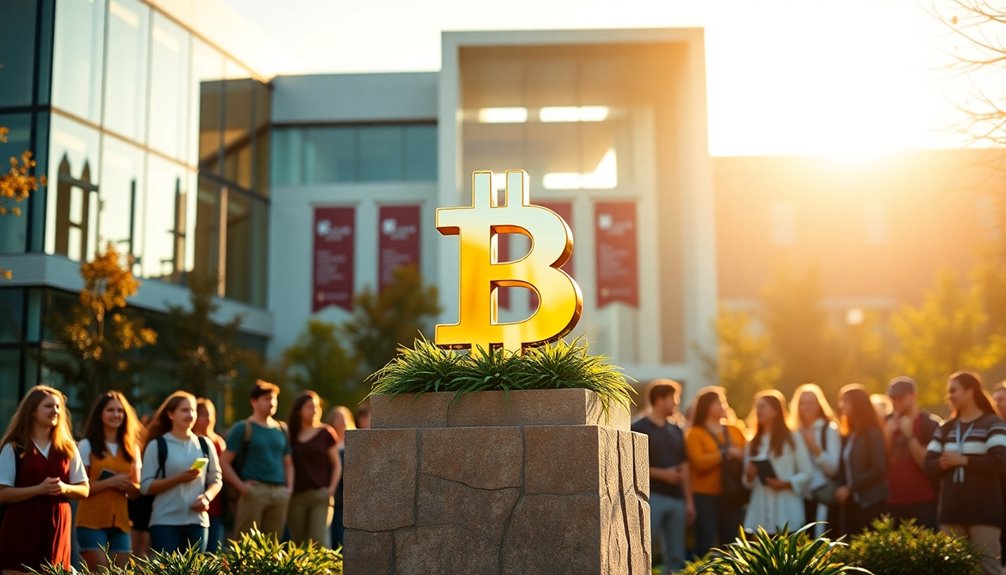You're likely aware that Bitcoin is making waves in finance and technology, but the University of Austin just took a significant step to elevate its academic standing. With a $5 million Bitcoin fund, the university aims to integrate cryptocurrency into its curriculum and enhance student involvement. This initiative raises questions about the future of education in this field and what it means for students entering a competitive job market. What might this mean for the broader acceptance of Bitcoin?

As academic interest in Bitcoin surges, you'll notice a remarkable rise in research publications, jumping from just 63 in 2017 to over 1,000 by 2022. This spike illustrates a growing enthusiasm among scholars, which is further highlighted by the increase in citations for Bitcoin-related work—from 435 in 2017 to an astonishing 26,381 in 2022.
You'll see that this isn't just a fleeting trend; it's a burgeoning field that covers a range of disciplines, including Business Finance, Economics, Computer Science, and Engineering. The interest in Bitcoin is also propelled by its role in transaction validation through mining, which remains essential for maintaining blockchain integrity.
The recent launch of a $5 million Bitcoin fund by the University of Austin exemplifies this trend. It signals a commitment to fostering academic inquiry into cryptocurrency and creates a platform for students to engage deeply with Bitcoin and its implications. This initiative aligns with the broader integration of Bitcoin and blockchain topics into university curricula, ensuring that students are well-versed in digital currencies as they enter a rapidly evolving job market.
You'll also observe that research centers focused on blockchain and cryptocurrency are popping up in universities across the globe, offering students and faculty alike the resources to explore this dynamic field. Notably, significant increase in Bitcoin research publications post-2017 underscores the importance of these centers in advancing knowledge.
Student engagement is thriving, too, as more individuals participate in hackathons, competitions, and projects centered on Bitcoin. This hands-on experience encourages innovation and critical thinking, essential skills in this new digital economy.
Collaboration is key in Bitcoin research, as co-authorship analysis reveals extensive networks among authors, institutions, and countries. This collaborative spirit not only enriches the research landscape but also promotes diverse perspectives on emerging topics like decentralized finance (DeFi), non-fungible tokens (NFTs), and clean energy applications related to blockchain technology.
As you follow these developments, it becomes clear that the academic community is committed to addressing the challenges and opportunities presented by Bitcoin.
Moreover, the increasing recognition of Bitcoin as an investment tool is reshaping how institutions perceive this cryptocurrency. Institutional investors are keen on using Bitcoin to hedge against inflation, further legitimizing its role in financial markets.
With regulatory support becoming more common, the foundation for Bitcoin's broader adoption is steadily being laid.









